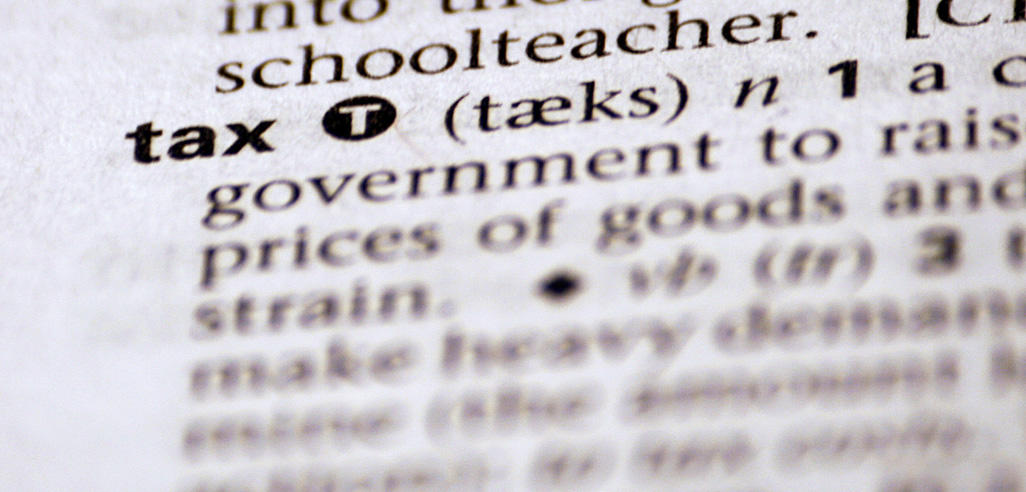Anyone working as a tutor in Australia, whether full-time, part-time, or casual, must report their income and meet their legal tax obligations. As a self-employed sole trader, it's up to you to keep track of what you earn and lodge your tax return with the Australian Taxation Office (ATO). Here's what you need to know about registering for a Tax File Number (TFN), Australian Business Number (ABN), keeping proper records, and staying compliant with tax laws.
Want to give private lessons?
Join the Superprof community and share your knowledge with interested and motivated students.
The Tutoring Industry in Australia
Statistics show that there has been massive growth in the number of people working as tutors and private teachers over the past five years and further growth is expected over the next five years. As of 2018, there were 39,700 tutors in Australia, whilst 2024 estimates suggest over double that.
private tutors in Australia.
The demand for tutors is already high and the industry is only growing. This means more and more tutors offer their skills, but with diverse experiences and qualifications. Because of the increasing popularity of home tutoring, income from private tuition is being monitored ever more closely by the Australian Taxation Office (ATO).
When you take on private tutor jobs, you are considered a self-employed sole trader. You may also receive a personal services income if over 50% of your work-related income is for your skills, efforts or expertise (rather than people buying goods from you). No matter your exact classification, you must comply with Australian tax laws and promptly report your earnings to the ATO. This means doing your tax return, which can be done online.

If you don't record and report all your income, you could face a fine or penalty from the ATO. To be safe, make sure you keep clear income reports.
Reporting your income doesn't have to be confusing or complicated; the process is relatively straightforward. Here, we've collected all our best taxation tips and included frequently asked questions for new tutors and a simple guide to recording your earnings and filing a tax return.
How Can I Register to Pay Taxes on My Tutoring Jobs?
The first important step in reporting your income from private tuition is finding or applying for your Tax File Number (TFN). Although having a TFN is not a legal requirement to work as a tutor in Australia, you will pay more tax if you don't have one.
A Tax File Number (TFN) is a unique personal reference number for the Australian tax system. It makes filing tax returns easier and helps ensure you don't pay too much tax. You can apply for a TFN online for free via the ATO website.
The TFN also allows you to lodge your tax returns electronically and apply for an Australian Business Number (ABN), which is crucial for setting up your tutoring business. You can find out more about the TFN here.
Once you have a TFN, the second important step is registering for an Australian Business Number (ABN). This unique 11-digit number identifies your business to the Australian government and taxation office. It is essential to print your ABN on all invoices for the client's reference.
You must register for an Australian Business Number (ABN) before you start invoicing clients. Without an ABN, you may face fines or penalties from the ATO.
The Australian financial year runs from the 1st of July to the 31st of June every year. As a self-employed tutor, you must complete a tax return for the previous financial year between the 1st of July and the 31st of October. As long as you have a TFN, it is possible to do this online. You must report your private tutoring income even if employed through an agency, which will change your taxation rate.
As of 2019, the current tax-free threshold is $18,200 per annum. This is how much money you can earn per year that is not taxed. If you earn under this amount, any tax you pay will be returned to you in full through your tax return.
a year before paying income tax, but you still need to report all your income.
You must register for a tax file number and ABN and submit your tax return by October 31st of your first year of working. Otherwise, the Australian Taxation Office may investigate you and you could even face a fine.
If you are taking on jobs in education or tutoring through a registered agency or employer, the tax may be taken out of your pay as you receive it. This is known as Pay As You Go withholding, and with this system, you do not need to do any taxation paperwork.
However, if you are self-employed, you can apply to make regular Pay As You Go installments through the myGov website. With this system, you make smaller payments towards your taxes throughout the financial year, rather than being slugged with a larger tax bill all at once. You can learn more about setting up Pay As You Go installments here.

Source: Unsplash
However, many tutor agencies, including Superprof, arrange all payments solely between the student and the tutor.
In these cases, you are responsible for keeping track of all income and payment records, and you will need to document all your earnings for the ATO.
Want to give private lessons?
Join the Superprof community and share your knowledge with interested and motivated students.
How Do I Lodge a Tax Return?
There are three main ways to lodge a tax return: through a registered tax agent, by paper, or online through the government's website, myTax. myTax is by far the cheapest and quickest option. However, if you have any issues or uncertainties relating to your tax return, you should book an appointment with a registered tax agent.
If you are a self-employed tutor, your tax return must be lodged between July 1 and October 31 each year. Missing this deadline can result in penalties from the ATO.
However you choose to lodge your tax return, you must have all the crucial information on your business and earnings. From the moment you take on your first tutoring jobs, you must keep records of your income streams and stay on top of any paperwork. This will make the whole process as painless as possible.
You will need the following documentation for your tax return:
- A record of the income and expenses from your private tutoring business
- If you also work through a tutoring agency or school, your PAYG earnings
- Any records of "other incomes" such as investments, savings, pensions or scholarships
- Bank statements for the previous financial year
Once you've set yourself up and are ready to begin tutoring, check out our tips on motivating your students to reach their full potential.
Common Expenses You Can Claim as a Tutor
How Should I Record My Income from My Tutor Jobs?
As a self-employed tutor, your legal responsibility is to keep detailed and accurate earnings records. This is so the ATO can correctly calculate how much to tax your income. Keeping good records helps to keep your tutoring business organised and will ensure your tax return is lodged as smoothly as possible.
Not recording or reporting all your tutoring income can result in fines, penalties, or audits from the ATO. Always report your full income, even from casual or one-off jobs.
To organise your records, you might want to separate them into allowable business expenditures and income. Also, make sure you date everything!

Everything you earn must be recorded. This could be done in a notebook, or an Excel spreadsheet or a Word document. It is also a good idea to log your expenses, along with any receipts. Expenses for your tutoring business could include advertising, travel, stationery, books, insurance and event rent if you use part of your home as a tutoring space.
Keeping detailed income and expenses logs that are clearly dated will make sure you stay up-to-date with your business documentation and will aid you in lodging your tax return quickly and easily.
Ensure everything you record is accurate and honest, and triple-check all the information you put into your logs to guard against mistakes or typos.
We recommend keeping track of your expenses as well. These can be deducted from your taxable profit and may reduce your overall tax bill.
Keeping track of all tutoring-related expenses, such as travel, teaching materials, and advertising, can help you claim deductions and reduce your overall tax bill.
Which Taxes Do I Pay On The Income from my Tutoring Jobs?
Under Australian tax law, your "taxable income" is the difference between your assessable income and the allowable deductions. If you are self-employed, you will be taxed at the individual Income Tax rate (rather than the company rate), which can be anywhere from 0% (for people who earn under $18,200 per annum) to 45%, depending on how much money you make and therefore which tax bracket you fall into. There is also a Medicare Levy of 2%. You may also need to pay Goods and Services Tax (GST) if you earn over a certain amount. If you want to estimate how much you will be taxed on the income from your tutoring jobs, you can utilise the Australian Government's online tax calculator.
Many private tutors also take on jobs for teachers through other businesses. If your tutoring income is in addition to employment through another registered business, you must report your income from both jobs. Since you are receiving income from multiple jobs, this will affect your overall tax bill.

Many private tutors also take on education jobs alongside their studies. This usually means you will not earn as much as a full-time tutor. In addition, if you are receiving a Youth Allowance, Austudy or ABStudy for the duration of your studies, you will need to report your tutoring income to Centrelink, which will affect your payment rate.
Do I need to pay GST? GST is a 10% tax on most goods and services exchanged within Australia. Sole traders (i.e., self-employed tutors like you!) do not generally need to pay this unless they earn over $75,000 per financial year. If you earn over this amount, it might be a good idea to include the 10% GST cost in your invoices to your clients.
You only need to register for Goods and Services Tax (GST) if you earn over $75,000 per year from your tutoring business. Below that, GST does not apply.
Now you've got a clearer idea of how to record and report your tutoring income, why not look into obtaining a Working With Children Check, which could be essential if your target market is likely to be younger learners.
References
- Dhall, M. (2020, October 29). Tutoring in Australia is a billion-dollar industry. Australian Financial Review. Retrieved from https://www.afr.com/policy/health-and-education/tutoring-in-australia-is-a-billion-dollar-industry-20201029-p569mp
- Billbooks. (2024, August 15). Do You Need ABN For Tutoring? Retrieved from https://www.billbooks.com/blog/abn-for-tutoring/
- Australian Taxation Office. (2024). Self-education expenses. Retrieved from https://www.ato.gov.au/individuals-and-families/income-deductions-offsets-and-records/deductions-you-can-claim/education-training-and-seminars/self-education-expenses
Want to give private lessons?
Join the Superprof community and share your knowledge with interested and motivated students.
Summarise with AI:





This article is extremely helpful. Thank you so much for clarifying tax on tutoring.
Can you claim the WWCC cost?